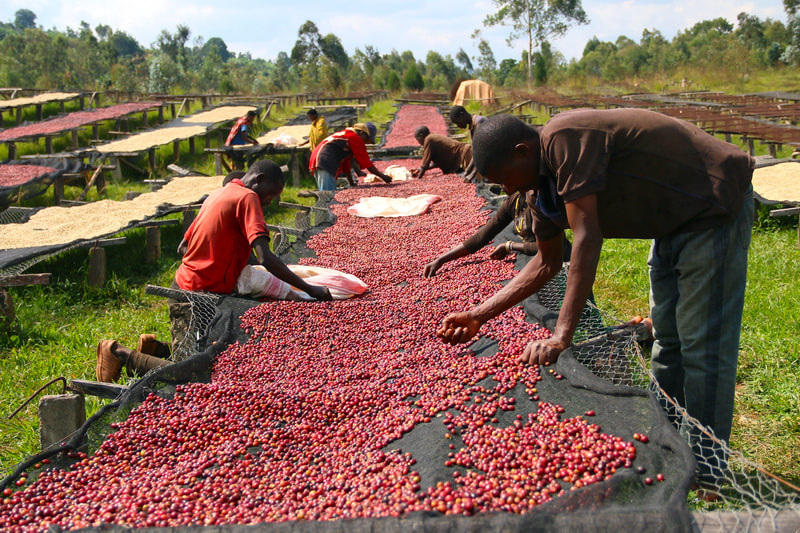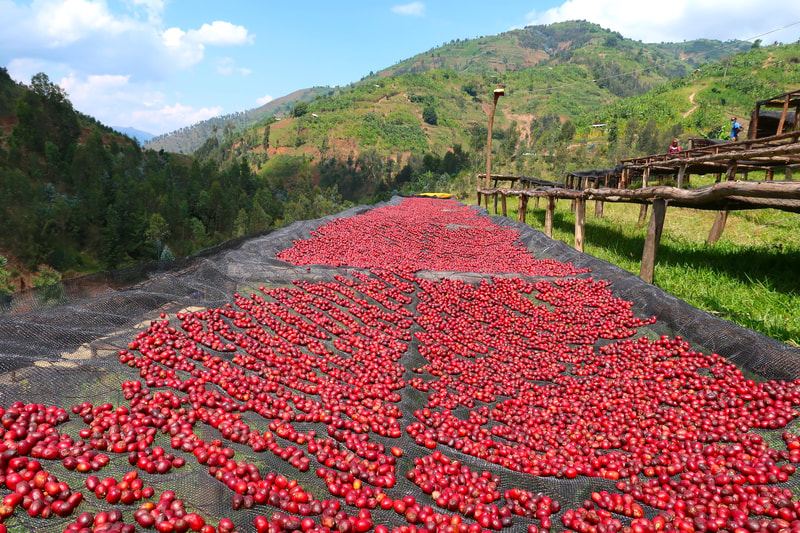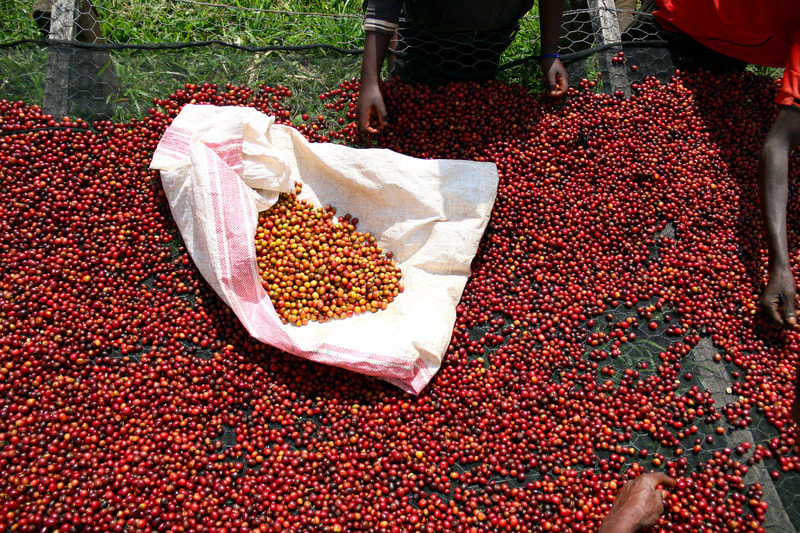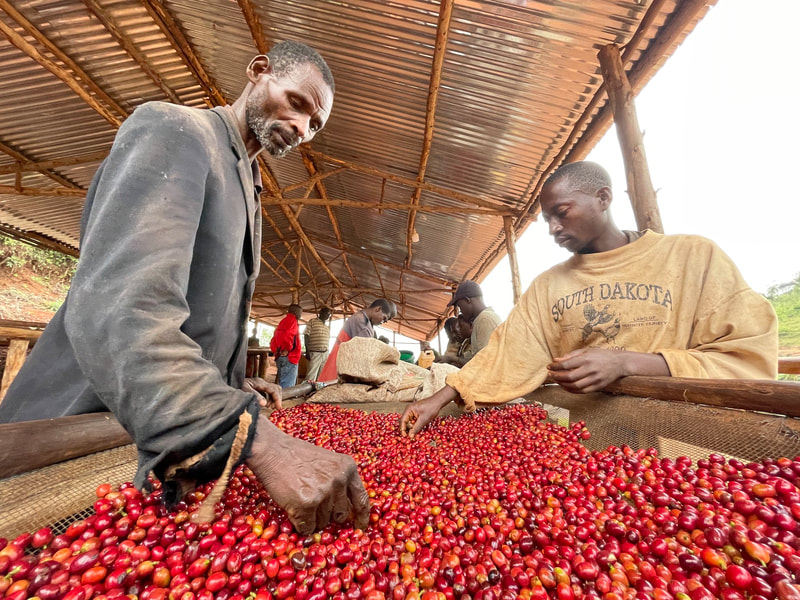RWANDA KARAMBI NATURAL
General Information
|
Origin: Rwanda
Region: Western Province District: Nyamasheke Washing Station: Karambi Farmers: 755 active members (499 female, 256 male) Cultivar: 100% Bourbon Types Altitude: 1700 masl Process: Natural Harvest: March - June 2022 Cherry Price | FOB Price: 4.88 USD/kg | 7.51 USD/Kg Screen | Moisture | Density: 15+ | 10.8% | 0.71 g/ml Packaging: 30 Kg + GrainPro Score: 87.7 Notes: Lavender, Guava, Melon, Blueberries |
|
HAND SORTING THE POTATO DEFECT
karambi cws LOCATION
|
WHERE WE ARE
Barcelona, Spain Santiago, Chile Budapest, Hungary |





